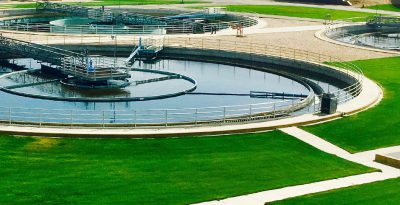
An industrial user is prohibited from introducing a pollutant that causes pass-through or interference. This includes any:
- hazardous waste
- liquids, solids, or gases that may result in fire or explosion
- solid or viscous substances which may obstruct flow
- corrosive or toxic pollutants
- residues, sludges, or scums that are unsuitable for reclamation and reuse
- colored wastes such as dyes, radioactive wastes, and liquid wastes from chemical toilets, trailers, campers, or other recreational vehicles
- wastewater having a pH of less than 5.0
For a complete list of prohibited pollutants and limitations, see 12-2-5 (B) of the Englewood Municipal Code or 7-5-25 (C) of the Littleton City Code.
South Platte Renew uses industrial wastewater permits as a control mechanism to ensure all applicable pretreatment standards and requirements are met by significant industrial users. An industry can only discharge wastewater under the requirements and limitations described in the permit. The permit describes all of the duties and obligations of the permittee. These include applicable parameter limitations, prohibited discharge standards, monitoring and reporting requirements, and other conditions to be met by the permittee.
All new industrial users that are deemed significant are required to complete an Industrial Wastewater-Permit-Application and submit information about their facility and processes. The information includes building layouts, spill control plans, wastewater flow diagrams, operational descriptions, and waste treatment specifications. A significant user means the industry performs a categorical process or discharges wastewater deemed significant due to pollutant concentration or volume.
Once the permit is issued, it becomes binding on the permittee and any violation of the permit is enforceable by Industrial Pretreatment. A permit may be amended to reflect the process or waste management changes at the facility that may affect the wastewater characteristics.


